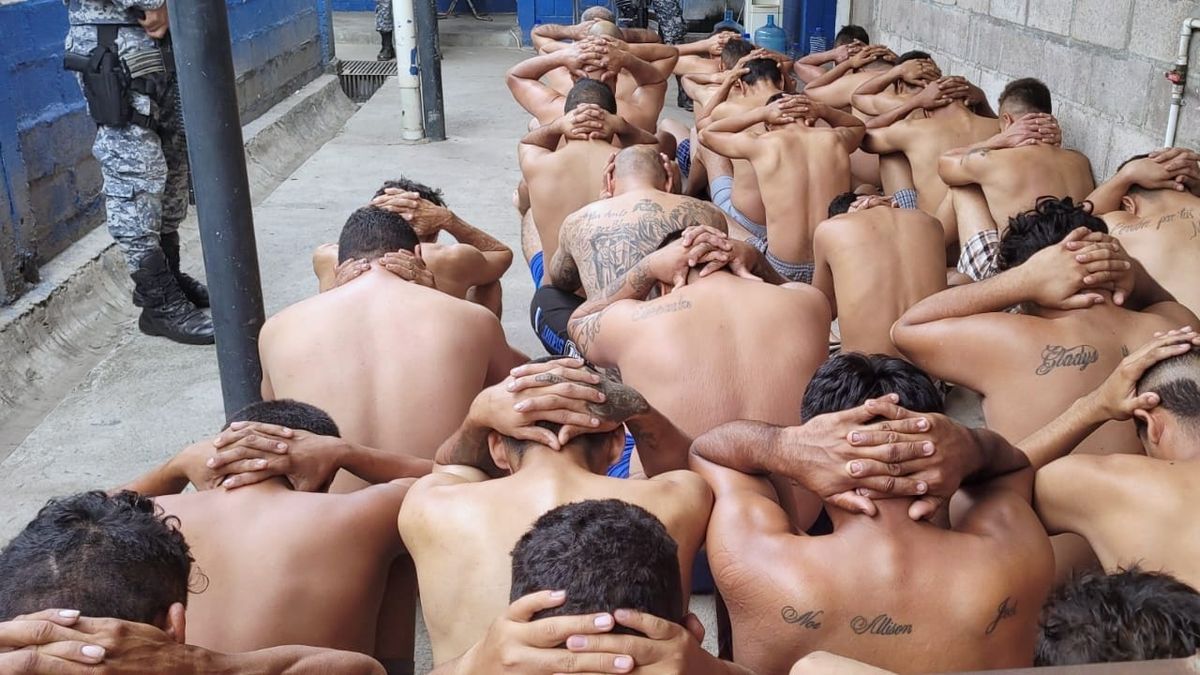The deployment of military and police allowed the structures of the “maras” or gangs, which were financed by the collection of “rents” (extortion), contract killings and retail drug sales. Those who refused to pay were killed or had a family member killed.
An InSight Crime investigation estimated that there were almost 120,000 gang members in the country: the Mara Salvatrucha I had 78,000 and the 18th neighborhoodwith its two factions, about 41,000.
More than 78,000 suspected gang members have been arrested, according to an official report filed Tuesday, and the gangs have been unable to recruit new members. In addition, almost 4,000 weapons were confiscated, some for military use. Legal reforms toughened penalties.
Criminologist Ricardo Sosa estimates that the gangs have lacked the capacity for “adaptation” to mutate into another criminal modality, while Bukele – re-elected in February for another five-year term – promises to continue the war “until we eradicate the little that still remains of The gang”.
bUKELE.jpg
The president of El Salvador, Nayib Bukele.
Photo: Reuters
Bukele’s crusade ended the domination that the gangs exercised over 80% of the national territory, according to the government.
In addition, the country reduced its homicide rate – which reached 106 per 100,000 inhabitants in 2015 – to 2.4 in 2023, below the world average (eight, according to the UN).
The fear of walking at night has disappeared, children have returned to playing in the parks and anyone can calmly board a bus or visit another neighborhood without fear of losing their life.
“Now you feel more confident when traveling on buses, you no longer see gang members asking passengers for money,” professor Mauricio López, 40, told AFP.
Entire communities “resumed the normality of their lives,” summarizes academic Carlos Carcach.
El Salvador state of siege

The Bukele government had taken the military to the streets for joint tasks with the police before the approval of the state of siege.
Courtesy: @FUERZARMADASV
A large part of the productive, commercial and transportation sector stopped paying “rent”, according to business associations. Restaurants now serve at night and deliver food at home.
“Today there is calm, we no longer have extortions, the danger has passed,” Aminta Alvarenga, owner of a wholesale store in El Tránsito, 125 km east of the capital, explains to AFP.
Through an asset forfeiture law, the government has recovered 8,000 vehicles, almost 21,000 cell phones, as well as hundreds of buses, taxis, houses and commercial premises in the hands of the gangs.
The security climate led to the reopening of businesses and has encouraged tourism, which in 2023 contributed income of 2,755 million dollars, 48% more than the previous year.
However, the economy continues to be a pending issue for Bukele, since 30% of Salvadorans live in poverty and 10% in extreme poverty, according to ECLAC. It is estimated that 70% of workers are informal, while thousands of families depend on remittances from abroad, which totaled 8,181 million dollars in 2023, 26% of the country’s GDP.
Human rights organizations criticize Bukele’s methods. Amnesty International and the Movement of Victims of the Regime denounce “arbitrary detentions”, alleged “abuses”, “tortures” and “deaths” in prison.
There are “327 cases of forced disappearances” and “235 deaths in state custody,” Amnesty states in a report presented Tuesday. The prison population is 102,000 people.
A previous AI report, from 2023, estimated that in El Salvador 1.7% of those over 18 years of age are detained, which gives one of the highest prison population rates in the world.
Part of the detainees remain in a ‘mega prison’ built by Bukele, considered the largest prison in Latin America, with capacity for 40,000 inmates, which has a severe internal regime.
The prisoners face collective trials without the right to defense and their families cannot visit them.
“I have my nephew Alberto [de 28 años] detained since August 7, 2022. He is innocent, we have not been able to see him, it is an injustice,” laments Cecilia Renderos, a 48-year-old housewife.
While some 7,000 detainees have been released, human rights groups say there are still many innocent people behind bars.
“The erroneous illusion has been generated that President Bukele has found the magic formula to solve very complex problems,” says Amnesty, which affirms that the president forces “the population to choose between security and freedom.”
Source: Ambito




